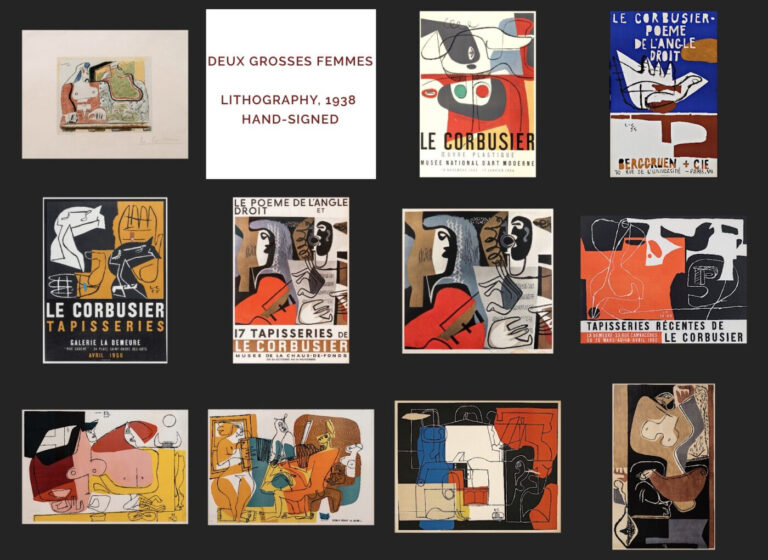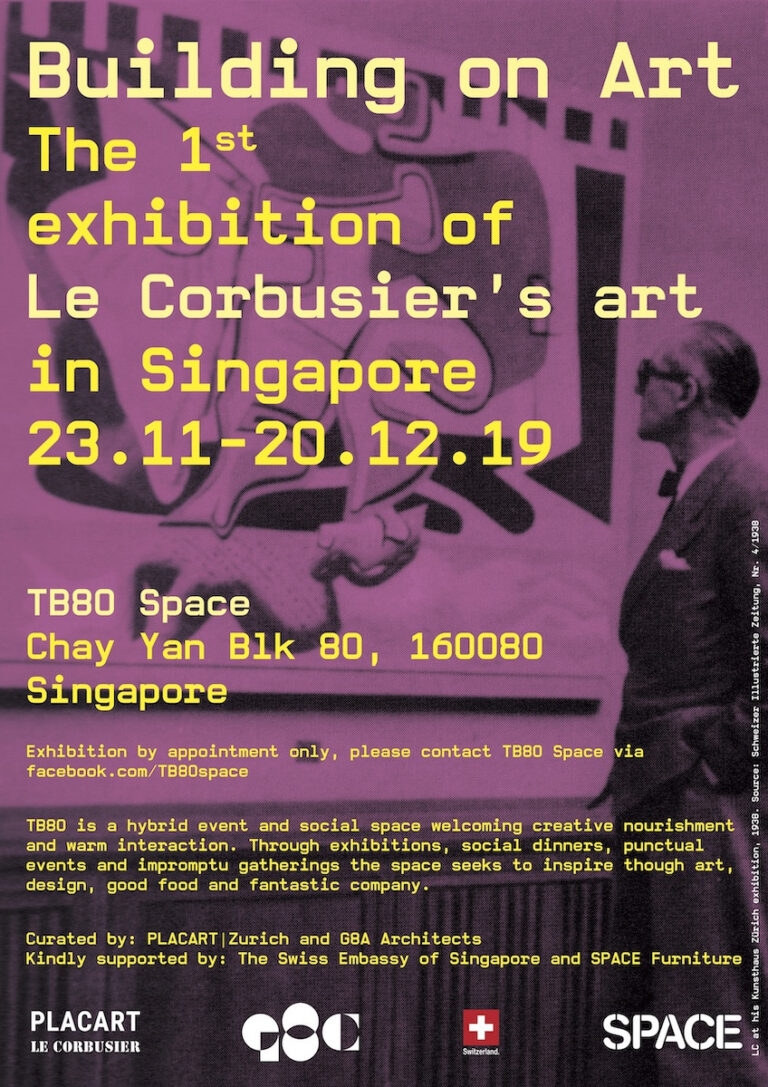“Just to have a look” turned into a love story with a Le Corbusier at PLACART’s. Tomas is very knowledgeable concerning all there is to know about Le Corbusier and was wise enough to give me time to doubt and redoubt before making the decisioin to buy this incredible, beautiful piece of art.
Our range of LC’s works
It was Le Corbusier’s artistic œuvre that laid the cornerstone of Placart fifteen years ago. Meanwhile, the gallery can offer the world’s largest selection of LCs lithographs, etchings, and engravings – a collection that can be discovered directly on-site in Zurich or at art-LC.com. We have also sold unique pieces; drawings as well as an oil painting as well as a tapestry. A small selection of unique items is also currently available.
Experts and collectors also appreciate the catalog «Bauen auf Kunst – Le Corbusiers Druckgraphiken aus fünf Jahrzehnten» (Building on Art – Le Corbusier’s Five Decades of Print Graphics), which the gallery authored and published on the occasion of its eponymous exhibition at the Architekturforum Zürich. Moreover, the comments by the gallery owner Tomas Rabara on LC’s entire graphic work and the information about the multiple and even post-mortem editions, make this catalog a very valuable source. (Fig.: Screenshot art-LC.com)

Testimonials

Exhibition in Singapore, Autumn 2019
PLACART is delighted to have co-organized the first show of LC’s artistic œuvre in Singapore – together with G8A Architects and with the kind support by the Embassy of Switzerland as well as by Space Furniture. On view were works from our inventory, including a few unique works. You may find more info on Facebook.
«The Key to My Architecture»
As an architect, a pioneer of Modernism; as an urbanist and author, a guarantee for sensation; as a designer, the creator of timeless armchairs: Le Corbusier – born in 1887 as Charles-Edouard Jeanneret-Gris in Switzerland’s La Chaux-de-Fonds – was a berserk of creative power, fabulously productive, incredibly inventive, in his own lifetime equally idolized and demonized.
He drew his strength and inspiration for this tour de force from his art. It is «the key to my architecture», he repeatedly emphasized. 500 oil paintings – many worth millions –, thousands of drawings and collages, hundreds of prints, and many tapestries, sculptures, and enamel works bear testimony. In these, he developed his formal arsenal, searched for balance of proportion, which he then used as an architect.
Between 1916 – even before his first purist paintings – and 1965, Le Corbusier explored printmaking, picking up on all his central themes, whether the still lifes, the «objets à réaction poétique» or the «Five Points of a New Architecture» which established his fame in the 1920s. His graphic work includes at least 200 prints, most of them hand-signed, printed by the masters of his time.
Le Corbusier approached these prints with great care. In his sense of artist mission, they were always a means of communication. For example, in 1963 he wrote to the lithographer Fernand Mourlot that they are «à disposition des gens intelligents . . . . . et pauvres (!) qui seraient ravis de payer très bon marché un mural de papier à punaiser sur leurs murs» (prints are for good and poor people who would be happy to pay little money for a print to pin on their walls).
Exhibition in summer 2019:
Invitation to «LC ZH 2019 – Works from Six Decades»
Events in connection with the exhibition
